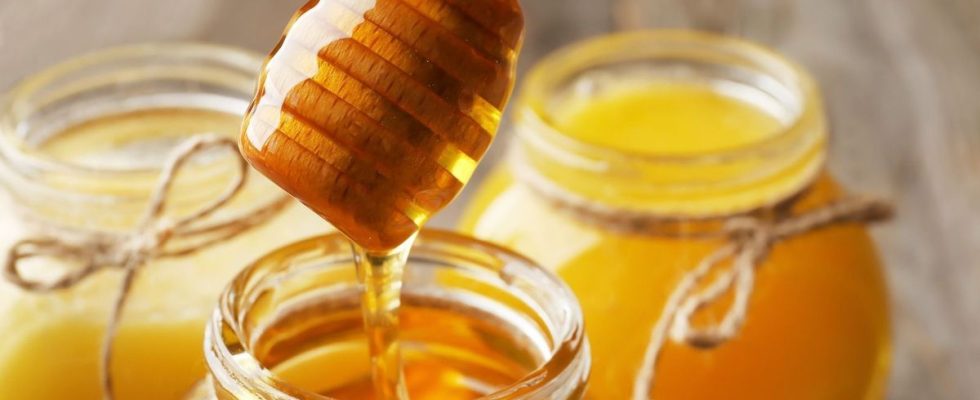Published on
Updated
Reading 2 mins.
Derived from an immense diversity of flowering plants, citrus fruits, eucalyptus or maple, the honeys of Jordan are experiencing growing success, which keeps the country’s hives running at full capacity and arouses the vocations of beekeepers.
“The Covid period, in particular, had a positive impact on our activity. There was a strong demand for honey”, says Mutasim Hammad, a 48-year-old beekeeper who made his passion his main occupation after working in the public security department.
Wearing a white protective suit, he inspects his 80 hives located on a property in Irbid, 90 kilometers north of Amman. According to the beekeeper, who sells around 400 kilograms of honey a year, “people have realized the value of locally produced honey, which is known for its anti-inflammatory properties and other health benefits.
The Kingdom of Jordan prides itself on its rich diversity of honeys, including 19 different types. “We have about 2,500 flowering plants”explains Mohammad Rababaa, director of the Jordan Beekeepers Association. “This diversity distinguishes Jordanian honey and means that its therapeutic and nutritional value should be better than that of other types of honey”, he believes. He cites the example of maple honey, which is slightly bitter and has “a very high level of phenolic compounds and antioxidants compared to other types of honey”.
NO to diets, YES to WW!
More than 4,000 beekeepers
Since the pandemic, “the demand for locally produced honey has clearly increased”, confirms Mr. Rababaa, professor of natural resources and environment at the Jordanian University of Science and Technology. For him, the number of beekeepers “is actually greater than 4,000”, far more than the approximately 1,400 officially registered in Jordan. They produce between 700 and 800 tons a year, or about 70% of the country’s annual needs, he says. “We are very close to self-sufficiency”underlines Mr. Rababaa, who even proposes a stoppage of imports.
Another enthusiast, Mohammad Khatib, 49, says the pandemic and confinement have “given enough time to get to know and care for bees”. A French teacher at al-Bayt University, he operates about fifteen beehives in his garden, which provide him with a significant extra income. “People are looking for quality honey” and some customers place their orders a year in advance, he says. Jordanian honey sells for between 15 and 30 dinars ($19 to $39) per kilogram, depending on the type.
According to Mohammad Rababaa, the economic benefits “are not limited to honey, because the bee also produces pollen, royal jelly, wax, propolis and bee venom, which enters into the composition of many therapeutic compounds”. Not to mention the pollination of plants, with almost unlimited effects on the ecosystem.
While the beekeeping sector generates around 25 million euros per year, “the indirect value of crop pollination exceeds 100 million dollars (90 million euros)”, emphasizes Mr. Rababaa.
